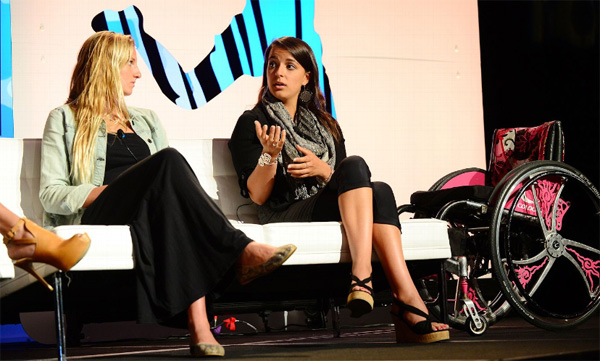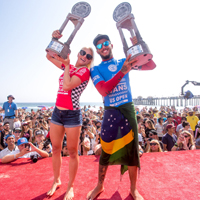
From October 9-11, 2013, some 275 top influencers and athletes in women’s sports gathered for the 4th annual ESPNW Women + Sports Summit in Dana Point, CA. The topic of conversation centered around women in sports and also the missed opportunities that women could bring to sports marketing and industry decision-making.
In an excellent review on Transworld Business (www.twsbiz.com), Donna Burton Carpenter spoke about the importance of having women in management to help with growing the industry as a whole.
“Women are deciding whether their families are going to Disney Land for vacation, or whether they are going to Vail or Stowe to go snowboarding,” says Carpenter. “You have to know who you are talking to and who that active woman is. I think she is very multi-dimensional; she is not all about one sport. Guys can compartmentalize; they have Car and Driver, they have Bike magazines, they have snowboard magazines. But women were never interested in being pigeonholed into that. We’ve got to reach her on a more broader basis in terms of her interests and lifestyle.” “I’ve really come to believe that who’s at the table making decisions around product, marketing, and sales really matters,” says Carpenter.
“There’s a connection between having women internally help drive your business, be innovative, and give that perspective, and be the champion for it. We’ve got to have women within our organizations who are really going to champion it and really make the connection that way.”
Donna Burton Carpenter’s theme on having women in decision-making positions at sporting brands is similar to what she outlined a few years ago at the Volvo Design Forum in Munich, Germany, during ISPO, where we also presented with data on the growth of the women’s sporting demographic.
The Women + Sports Summit, founded by Laura Gentile, the Vice President of ESPNW included many in mainstream sports, but also mixed with those from the action sports scene. On hand were Elena Hight, Amy Purdy, Jamie Anderson, Grete Eliassen, Alana Nichols, and Lakey Peterson, among others. The mix also brought to light the differences in various sports disciplines ranging from the WNBA to surfing, and those on the road to the Sochi Winter Olympic Games in February, 2014.
The theme, “Women Matter” resonated and the stories shared among attendees illustrated the growing power of women in sports and sporting industries. However as Carpenter pointed out, those in management positions is still hovering around 35%.
As we’ve also pointed out at Label Networks in a variety of reports on mainstream and action sports, the potential marketplace within sports has yet to be realized simply because younger women in particular have not yet had a place to participate and or have the opportunities to engage in various sporting cultures, even though they have the money to spend than ever before and even greater interest in certain sports than males.
As we have stated in reports such as the State of Action Sports, more young women are interested in learning to surf, skateboard, and snowboard than males within the same age groups of 13-25-year-olds and have been for the past 5 years. However while these industries are shifting, events are shrinking for women within these sports (see also women in surfing), and many brands within these industries have yet to understand the female marketplace to effectively target their product—which is another missed opportunity.
What’s worse, is that many brands we hear from within the sporting industry admit that if a higher percentage of females like their brand compared with males as may be revealed in our data, they do not necessarily want it to be known (which comes up often within sneaker culture) because they believe they will lose cred if it’s considered to be a “girls” brand.
In our post-gender age of youth culture, being considered a female or male brand is the least of their worries. Which stems into some of the insights that came from the ESPNW Women + Sports Summit: Because so many managers in the industry are used to doing things in a certain way, they believe their methods for reaching their audience will always work the same as before, and therefore not even recognize the changes in a new generation of active women towards reaching their brands’ fullest potential.
Of course the best thing to come out of the ESPNW Women + Sports Summit is the recognition of women in sports and industry and the fact that more can be done to fulfill the potential for sports in general. The greater awareness of women and sports that comes from such summits is vital towards achieving new goals.


